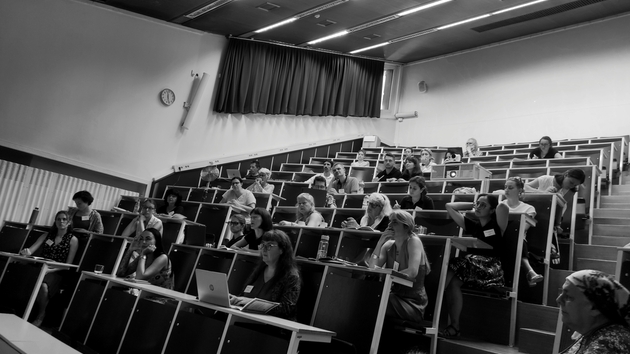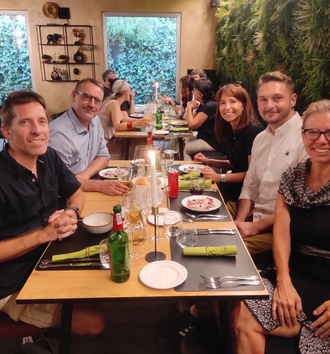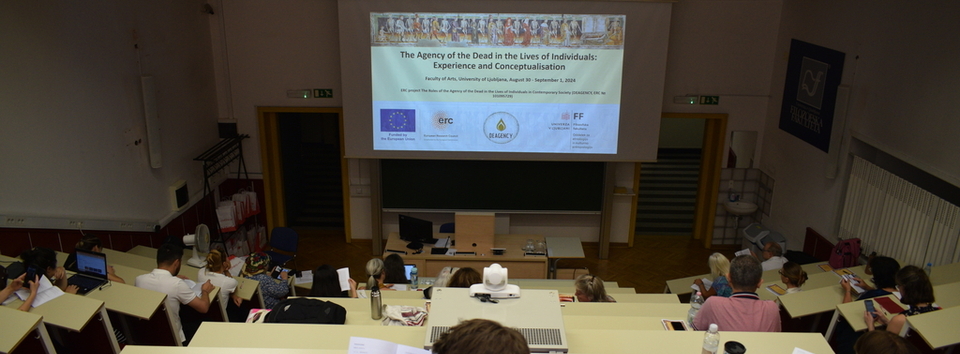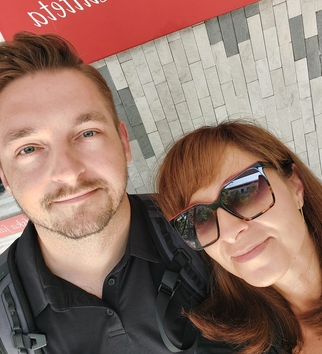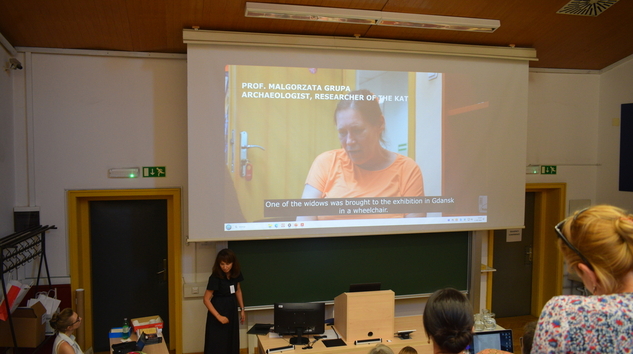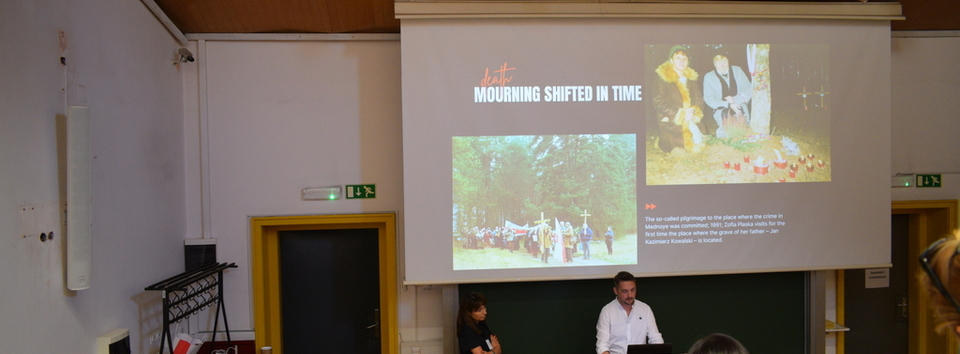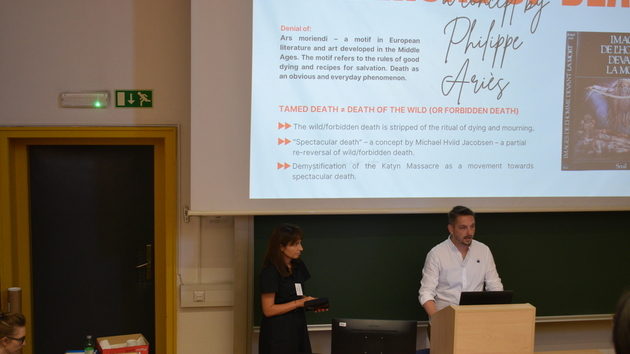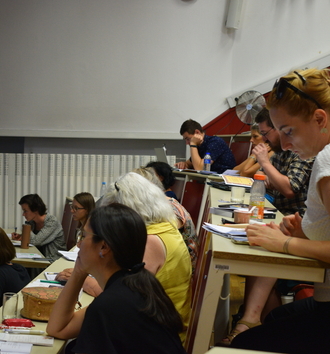Kilka dni temu mu w Lublanie (Faculty of Arts at the University of Ljubljana, Slovenia) zakończyła się międzynarodowa konferencja "DEAGENCY The Agency of the Dead in the Lives of Individuals: Experience and Conceptualisation" (ERC Project Deagency). Wśród badaczy z 19 krajów byli także reprezentanci naszego Instytutu.
Dr Aleksandra Krupa-Ławrynowicz i dr Sebastian Latocha przedstawili wystąpienie zatytułowane "Reversal of Death: The Impact of the Katyn Massacre on the Biographies of Widows and Orphans". Zaprezentowali wybrane efekty badań etnograficznych, które prowadzą w ramach projektu badawczego „Leksykon archeologii katyńskiej (1990–2015)” realizowanego w ramach modułu „Dziedzictwo narodowe” Narodowego Programu Rozwoju Humanistyki MEiN na Wydziale Filozoficzno-Historycznym Uniwersytetu Łódzkiego (2022–2027).
Elementem wystąpienia była prezentacja materiałów filmowych realizowanych w trakcie przeprowadzania wywiadów etnograficznych.
ABSTRAKT: The Katyn Massacre was a genocide in European history. In the spring of 1940, over 20,000 Polish citizens (mainly officers of the Polish Army and the State Police) were shot by decision of the USSR authorities, and their bodies were buried in the forests near Katyn, Kharkov, and Miednoye. The way in which they were murdered fits into the concept of “reversal of death” by Philippe Ariès. It was a death without loved ones, in a foreign land, a wild, deritualized death. And after the Second World War, it was subject to a social and political taboo (so-called the Katyn Lie). Some descendants of the victims have had no information about their relatives for several decades, others still do not know where their bodies were buried.How did the deaths of the murdered affect the biographies of widows and orphans after the war? Why didn’t they have the opportunity to experience mourning? What significance do they attribute to deaths of their husbands and fathers? How were they and how are they commemorated? The narratives collected during ethnographic interviews, conducted mainly with the descendants of the victims, show what is recorded in individual experience, in family memory. The interlocutors talk about mourning shifted in time, about completing the funeral ritual after several decades, about the role of cemeteries in Katyn, Kharkov and Miednoye from the perspective of individuals. The subject of our interest is how the deaths of the victims of the Katyn Massacre creates a sense of obligation to sympathize. Moreover, why it becomes a kind of important, although painful legacy. This approach enables a dual reading – at the level of historical truth and narrative truth, in the perspective of communicative and cultural memory.
Konferencja zorganizowana została w ramach grantu ERC "The Roles of the Agency of the Dead in the Lives of Individuals in Contemporary Society" (DEAGENCY, ERC № 101095729).
A później był Luksemburg, o czym już niebawem...

